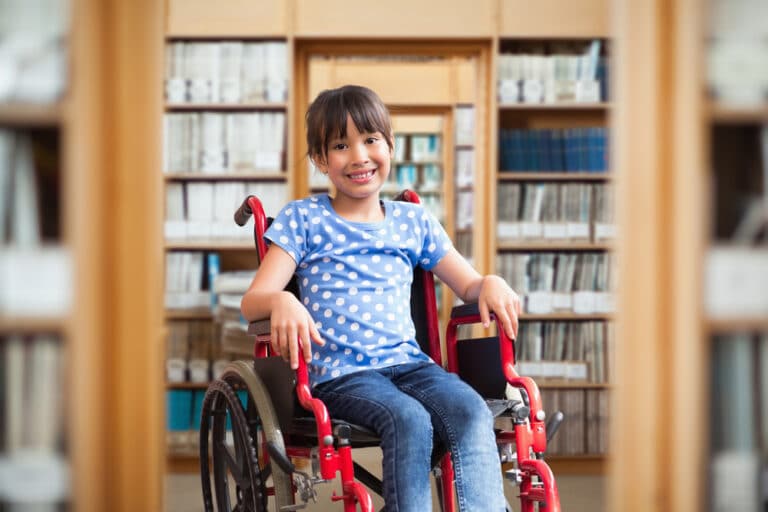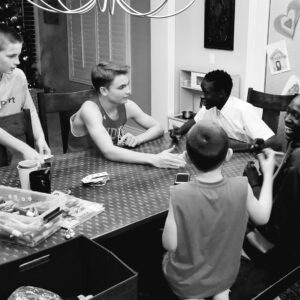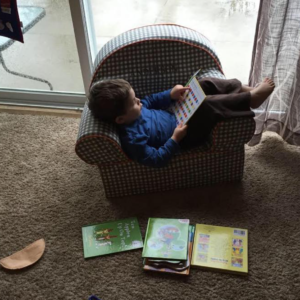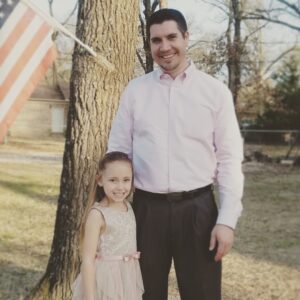Imagine this: You are waiting in the doctor’s office with your child, and across from you sits a little girl in a wheelchair. She is moving her body in unusual ways and making strange noises. The atmosphere in the room is hushed, so when your child asks what is wrong with the little girl, you know everyone else can hear. You have to do something, but what?
You decide to ____
A. Whisper that it’s rude to stare.
B. Ignore the question and give the girl’s mother an apologetic smile.
C. Freeze in embarrassment.
D. Ask the girl’s mother if it’s okay to inquire about her child.
E. Encourage your child to approach the girl and talk to her directly.
I have been in this situation multiple times. But not because I am the mother making one of the choices above. Because my 5-year-old daughter JJ is the girl in the wheelchair. Children are often curious about her differences, and their parents usually have one of the five reactions listed above.
I can’t speak for everyone, but many special needs parents I know prefer answers D or E. We like other children’s curiosity to be openly acknowledged, not brushed away. If their questions are shut down, these children lose an opportunity to learn about someone who is different and discover that people like my daughter should be politely ignored.
RELATED: Don’t Be Afraid To Talk To Us Because We Have a Child With Special Needs
But what these parents don’t realize is that their reaction affects my daughter too. From them, JJ learns that she is someone who makes other people uncomfortable. Because my daughter is sweet and sociable, she also misses out on interacting with another child—something she loves to do.
Despite this, I never expect people to know exactly how to react to my daughter. Before I had JJ, I was the person who would have frozen in my seat. But I have come to greatly respect the people brave enough to talk openly and honestly about JJ’s disabilities. If you want to be that person the next time your child comes across a disabled peer, here are some tips.
First and foremost, it’s important to presume competence. Unless you have evidence to the contrary, you should never assume someone can’t do something. If a person is in a wheelchair, that doesn’t mean they can’t walk at all. If they are non-verbal, that doesn’t mean they can’t communicate. If they don’t appear to be listening, that doesn’t mean they’re not aware of their surroundings.
You should also include the person with disabilities in the conversation. JJ is used to people talking around and about her, instead of to her. She is non-verbal, so many people assume she can’t contribute to the discussion. But my daughter is a smart little girl who understands everything. She can’t speak or use her hands, but she loves to express herself through her eye-gaze device. She uses it to explain things about herself, ask questions, or even tell a knock-knock joke or two.
Other children often want to know everything about JJ’s condition, skills, and abilities. If your child has a question, don’t stifle their curiosity. If their question is a little cringe-worthy, that’s okay. You can help them reword it in a more respectful way. Most disabled children and their parents have heard it all, anyway.
RELATED: Don’t Be Afraid to Talk to Your Children About My Child With Special Needs
If you sense the child with disabilities is receptive, try to encourage social interactions. Help your child ask questions about favorite games, television shows, superheroes, or anything that makes for fun and interesting conversation. Interactions like these help JJ seem less like a girl in a wheelchair and more like a person with her own interests and views about the world.
Children model their behavior on their parents. When we act embarrassed by people who are different, our children learn to feel the same. But when we lean into their interest, I have seen what wonderful things can happen.
Many children in JJ’s life think of her as sweet, interesting, fun, and unique. Some ask her to join in on neighborhood tag. A few enjoy riding next to her in her adaptive motorized car. Still others play games with her on her eye-gaze device. These interactions make JJ happy and teach her peers not to be afraid of children who don’t look or act like they do.
Many of JJ’s connections were sparked by a child who saw someone different and wanted to know about those differences. But in each case, there was something equally important—an adult who was brave enough not to sweep those questions away. So the next time you’re in a scenario like the one in the doctor’s office, consider encouraging your child’s interest. You never know how far a little curiosity can go.

If you liked this, you'll love our book, SO GOD MADE A MOTHER available now!
Order NowCheck out our new Keepsake Companion Journal that pairs with our So God Made a Mother book!
Order Now


















